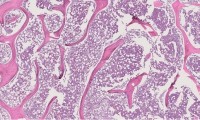-
Rapid Bedside Test to Protect Newborns from Life-Threatening Illnesses
- Source: drugdu
- 462
- January 6, 2024
-
Machine Learning Model Calculates Chemotherapy Success in Patients with Bone Cancer
- Source: drugdu
- 395
- January 6, 2024
-
Nalu Medical raises $65M for neurostim tech
- Source: drugdu
- 736
- January 6, 2024
-
FDA Grants Fast Track, Breakthrough Designations to CG Oncology Inc’s Cretostimogene Grenadenorepvec
- Source: drugdu
- 335
- January 6, 2024
-
Lilly makes website to simplify access to obesity drug Zepbound, plus diabetes and migraine meds
- Source: drugdu
- 651
- January 6, 2024
-
Thermo Fisher to cut the lights at California plastics plant, lay off 74
- Source: drugdu
- 339
- January 6, 2024
-
Inbound HCP communication channels double digital engagement, Veeva finds
- Source: drugdu
- 374
- January 6, 2024
-
Bluebird bio’s Lyfgenia launch progresses with 2nd major outcomes-based coverage deal
- Source: drugdu
- 305
- January 6, 2024
-
Novo Nordisk, Eli Lilly’s weight-loss drugs under FDA scrutiny for suicidal thoughts, hair loss
- Source: drugdu
- 456
- January 6, 2024
-
CVS Caremark to kick AbbVie’s Humira off some formularies in favor of cheaper biosimilars
- Source: drugdu
- 503
- January 6, 2024
your submission has already been received.
OK
Subscribe
Please enter a valid Email address!
Submit
The most relevant industry news & insight will be sent to you every two weeks.
















